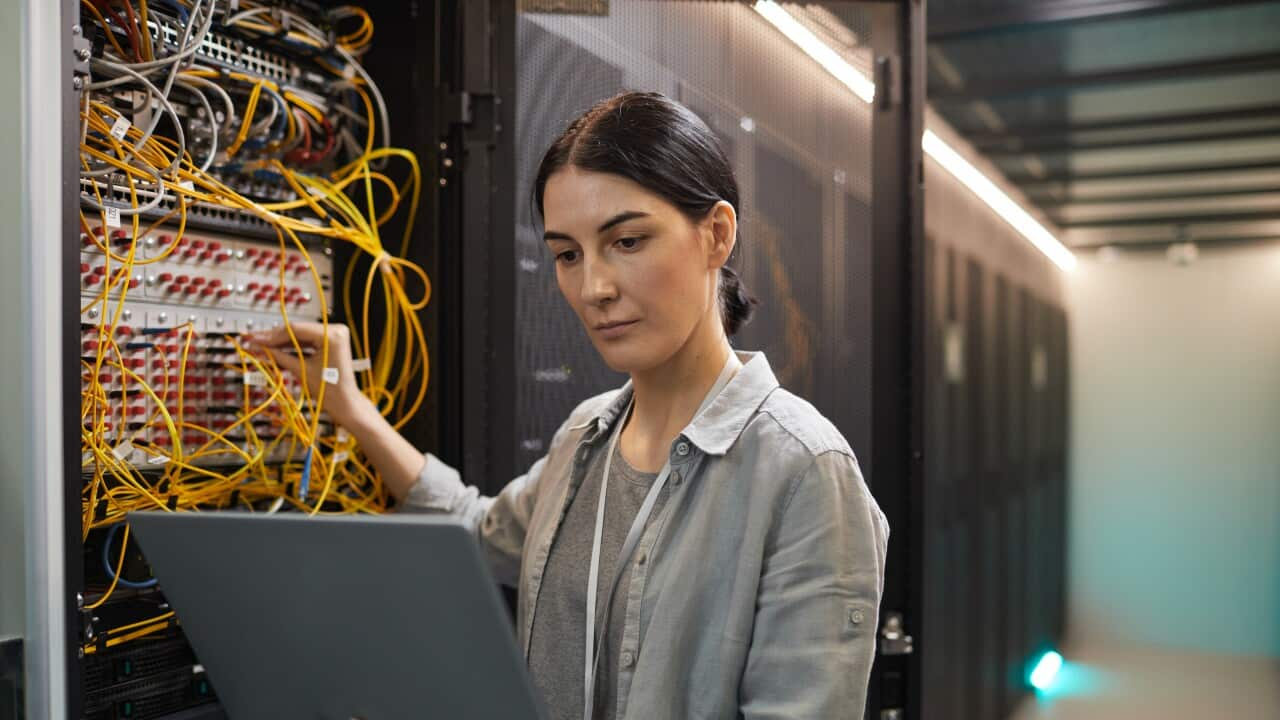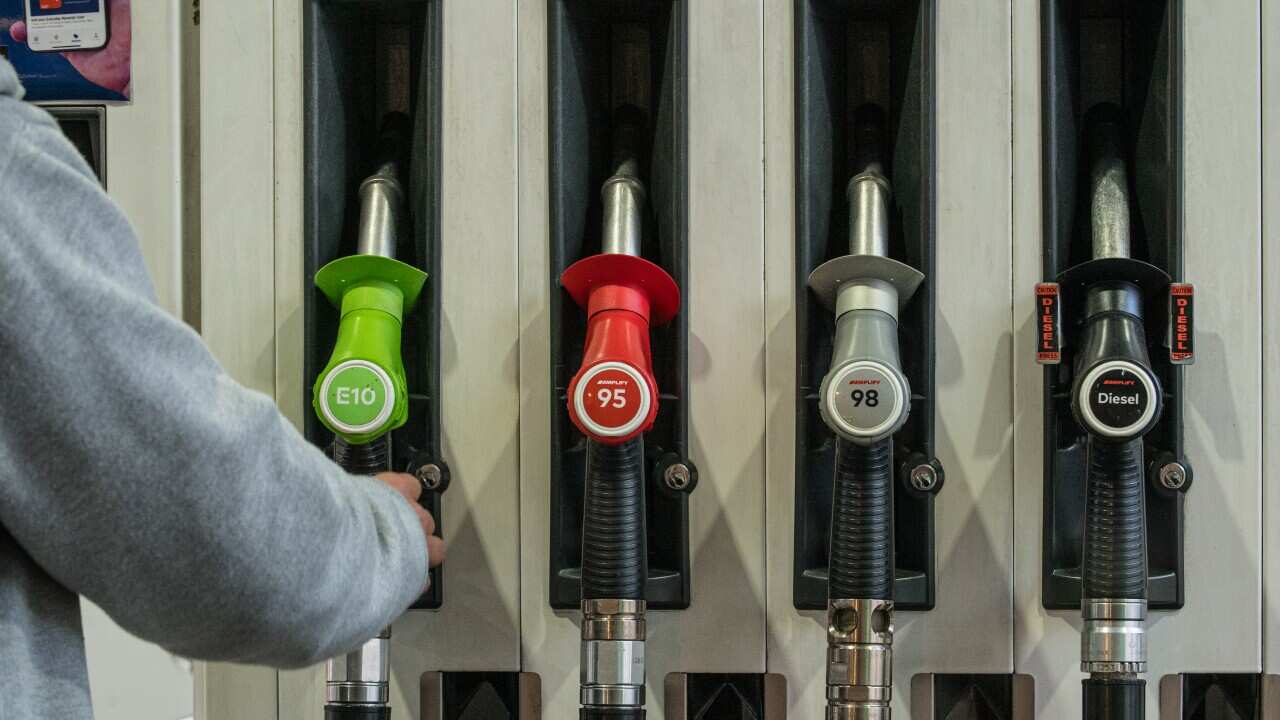Key Points
- AI technology is evolving rapidly, with further advances expected in 2023.
- AI is changing the way we work, and the types of jobs that are available to humans.
- Jobs that require "uniquely human skills" are likely to be less vulnerable to disruption.
Artificial intelligence (AI) is on the rise, and the increasingly powerful technology is expected to upend the way humans work - rendering some jobs obsolete while simultaneously creating new opportunities.
In 2023, the world is on the brink of being completely transformed by AI, according to Alex Jenkins, director of the WA Data Science Innovation Hub at Curtin University.
“The technology is evolving extremely fast," he said.
"We're now at that leap in functionality where these tools are becoming incredibly useful both for generating new content, and conversing in a human style. So we're really starting to see these tools act in a way that is comparable to human-level capability.
“Eventually, these tools will probably become smarter than most humans and more capable than most humans. That is both an exciting and dangerous future.”
So what do workers need to know about AI and is it possible to future-proof your career against it?
What’s all the fuss about ChatGPT?
One AI tool in particular has sent shockwaves around the world in recent months due to its ability to respond in writing in a sophisticated human-like manner.
OpenAI says its mission is “to ensure that artificial general intelligence (AGI)—by which we mean highly autonomous systems that outperform humans at most economically valuable work—benefits all of humanity”.
Since its launch, ChatGPT has sparked debate over issues including how the technology could be used by students to cheat on assignments, its potential application in fields ranging from medicine to law, and the types of jobs it could displace humans from.

ChatGPT's successor, ChatGPT-4, is set to launch in 2023. Source: NurPhoto / Getty
Mr Jenkins said these tools have been around for a while but previous versions "didn't quite understand" what humans were talking about.
"But now with ChatGPT, we're seeing these models come to the point where it feels like you're almost talking to a person, it feels like you're talking to a system that understands your intent, and what you would like to achieve from the tool.”
ChatGPT-4, the next iteration of ChatGPT, is set to launch in 2023, and it’s expected to be a game-changer.
“It will be like ChatGPT, but it will be even more capable. And that that will be a significant disruption for the workforce and the economy as a whole,” Mr Jenkins said.
“It is probably going to be the biggest technology revolution that we've seen for a number of years. It's certainly as big as the shift from mobile phones to smartphones, and the creation of the internet.”
Which jobs will AI replace?
AI tools pose an immediate and growing threat to a range of jobs, from copywriting to data entry and administration.
Mr Jenkins estimates that roughly 20-30 per cent of knowledge and office-based jobs are “likely to change in the next few years” due to the rise of AI.
“If I was a copywriter, I would be looking to familiarise myself with ChatGPT very, very, very soon," he said.
"I don't believe it will be possible for a copywriter — unless they're the world's most creative copywriter — to compete against what ChatGPT can provide in that space. It is very, very capable of doing that type of work,” Mr Jenkins said.
“If you're the world's best author, and in the very top end of town, then you'll probably be OK at the moment. But for large parts of that workforce, they will need to adjust to using these tools today.”
Lawyers may also be vulnerable to the AI revolution, with an AI-powered legal assistant created by US firm DoNotPay set to defend a client in court next month in what would be a world-first.
According to a report released last year by Sydney-based research firm McCrindle, jobs that are on the way out due to the rise of automation and AI include data entry clerks, administrative and executive secretaries and accounting, bookkeeping and payroll clerks.
“As harsh as it sounds, almost anything that can be automated will be automated. And I think it's natural for people to be scared about that and be a bit nervous,” McCrindle’s Director of Advisory Ashley Fell told SBS News.
“The big downside, particularly with regards to the future of work is that [AI] will replace jobs traditionally done by humans, like we saw a few years ago now with [technology such as] self-checkouts at the airport and shopping centres.”
What kind of jobs are safe from AI disruption?
According to McCrindle's report, jobs that are increasing in demand include data analysts and scientists, AI and machine learning specialists, and big data specialists.
Some jobs will also be protected from the AI revolution by their uniquely human nature.
“We're not going to replace the human-to-human interaction with these AIs. They aren't capable of that kind of thing,” Mr Jenkins said.
Ms Fell said people looking to future-proof their career against AI disruption should focus on jobs that require “uniquely human skills”.
“As we think about the future of work, and the particular jobs, or industries that are at a higher risk of automation replacing them, we do think it is those sort of lower-skilled, repetitive tasks or jobs that don't lend themselves as much to those uniquely human skills like creative thinking, critical thinking, empathy, compassion, leadership, almost like those soft skills, things that can't sort of be as easily replicated or repeated,” she said.
How can we make the most of AI?
Mr Jenkins’ advice to workers worried about AI disruption is to embrace, rather than fear, the technology.
“Instead of being scared of the technology, start using it straightaway, and understand its strengths and weaknesses … use the technology to amplify your strengths, your individual characteristics, the things that you are strong at,” he said.
“One way to think of this technology is that you're a manager, and the AI are your staff members. It does take some work to figure out well, what's the best way to get my staff to produce the best and the most amount of work for our team?
“So start thinking like you have an assistant. That will be the best way for people who are concerned about the technology to understand how their job might change.”
Today’s workers and future workers will need to embrace “lifelong learning” in order to keep pace with changing technology.
“Lifelong learning is being driven largely by automation (growth of robotics, data analytics, smarter software), globalisation (greater degree of outsourcing and growth in digital platforms) and demographic realities (such as an ageing population where people live longer and work later),” the McCrindle report said.
“This requires a new mindset and an increased focus on retraining and skills. Gone are the days where one to four years of study after school was sufficient. Rather, workers will increasingly need to develop a habit of refreshing existing skills and learning new ones.”
Governments and regulators around the world also have a major role to play in ensuring that society as a whole benefits from the AI revolution.
“If we have AI models that are open source and can be used and built on by anyone, then we all as a society have a chance to profit from the model,” Mr Jenkins said.
“If the models are kept closed up behind single companies, then we risk being dependent on these companies for these models, and that a large amount of wealth will be generated by a very, very small number of people.”












